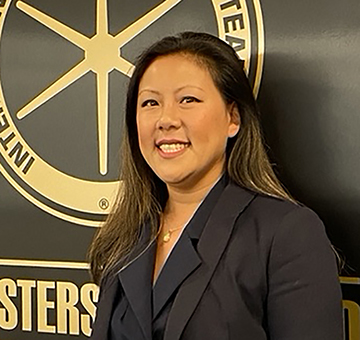Coronavirus and jobs: what we know and don’t know
July 1, 2020Over 100 days into the COVID-19 pandemic, California and the rest of the United States are grappling with unemployment numbers this country has not seen since the Great Depression. In California alone, almost 30% of workers have filed for unemployment. For workers of color, women, low-wage workers, and workers without college degrees, the numbers are even higher. Add to this nearly 500,000 undocumented workers and over 400,000 “independent contractors” in California and the numbers are staggering.
Here are some details from a recent UC Berkeley study:
The Great Recession, which was more sharply felt in California than nationally, was followed by a weak recovery fueled by widening inequality and increasingly precarious economic status for many workers.
The public sector continues to be a path to the middle class for Black workers, who are more likely to work in the public sector than all other racial groups. Data from the Great Recession suggests that public sector budget cuts disproportionately impacted Black women.
Since February 2020, more than 150,000 state and local employees in California have already lost their jobs. As local governments adopt 2020-21 budgets that account for dramatic revenue losses from COVID-19, we expect to see those losses climb significantly.
Teamsters in the parking, rental car, and hospitality industries have been hit hard by layoffs. Still, compared to workers in other unions and industries, Teamsters have largely been spared. In fact, many Teamsters – from UPS to grocery distribution and many other places – are working longer and harder than ever before. We are being asked to work in different ways as we fight for the tools we need to do our jobs safely. Many of our employers are hiring to try and keep pace with the demands of a greatly accelerated shift in the economy toward online retail. This pandemic has changed things–and they will continue to change–in ways we never could’ve predicted.
For workers who’ve lost their jobs, it means loss of income, health insurance, and maybe housing. For those still working, there is the increased risk of coronavirus exposure. Regardless of which category you fall in, there is more stress, anxiety, and fear of the unknown.
In this moment where there is a heightened focus on racism and race relations in this country, it is worth noting all the ways the coronavirus has hit Black and Latinx workers and their communities. As I mentioned, these workers have been hit hardest by layoffs. But they are also most likely to be employed in essential occupations like health care, transportation, retail grocery, janitorial and security services, agriculture, and more. That’s why they are more likely to get coronavirus at work.
Then what happens at home? Black and Latinx workers are more likely to live in densely populated housing, often multiple generational families living under the same roof. This increases risk and transmission rates and puts elderly family members at increased risk. These workers are more likely to live in segregated communities that lack essential services like grocery stores, health care clinics, jobs, and more. This requires more travel and that comes with increased risk.
Finally, the recent focus on criminal justice reminds us that Black and Latinx people make up the bulk of people behind bars in detention centers, jails, and prisons. They are at higher risk too.
Death rates among Blacks and Latinx people are substantially higher than Whites, Asians, and other ethnic groups. In the face of all of this injustice, I am proud that our Joint Council President Rome Aloise was one of the first Teamster elected officials in the country to make a strong statement after the death of George Floyd.
So, what does the future look like? Nobody knows. People are debating which jobs will come back and when. What will they look like? Will workers be safe? What happens if Congress fails to extend the expanded $600 in federal unemployment benefits that have meant so much for workers living on the edge? What happens if eviction and mortgage foreclosure moratoriums expire?
One thing for certain is that our members who perform essential public services for local government – whether it’s cities, counties, school districts, transit agencies, or special districts – are going to suffer hard times during this next phase. That’s true whether you are a direct government employee or you work for a private company that has a government contract, such as solid waste and recycling workers, bus drivers, and more. That’s because government budgets are reeling under deficits that even a year ago seemed unlikely.
As a union, we are fighting tooth-and-nail to protect our jobs, our hours, and our wages and benefits. The Public Services Division is preparing leadership to bargain in tough times. Everywhere we can, we push for cuts at the top instead of the bottom, insourcing instead of contracting out, and finding new sources of revenue.
That’s why Joint Council 7 just endorsed Schools and Communities First, an initiative on the November ballot that will close a property tax loophole for large corporate property owners created by Prop. 13 in 1978. The good news is homeowners will still be protected.
We are also working hard to help pass the HEROES Act, a bill before the U.S. Congress that will provide additional relief to local and state governments and create more jobs.
Finally, this November, California will hold a historic all-mail ballot election. That means every registered voter in California will get a ballot in the mail. Now, more than ever, we need every Teamster to vote – and there is no good excuse not to do it! The next newsletter will profile ballot initiatives, candidates, and other measures we are supporting for the November election. Stay tuned!

